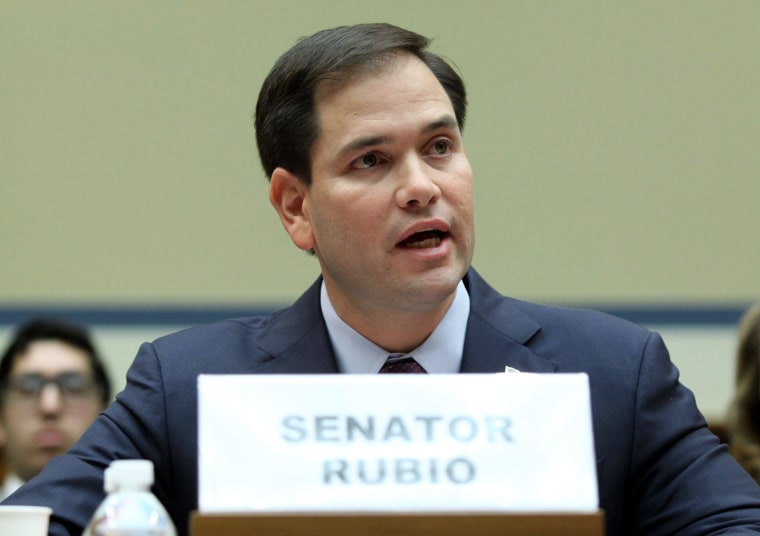Florida Republican Senator Marco Rubio proposed alternatives such as accredited online courses and a student loan program involving private investment firms as ways to bridge the "growing opportunity gap between haves and have-nots, those who have advanced education and those who do not."
Rubio proposed that Congress establish an independent accrediting agency that would assess free online courses as transferrable credits, and that workers earn certifications or degrees obtained outside traditional institutions after passing standardized tests. The Senator made these proposals at an education forum at Miami Dade College on Monday.
The average annual cost for a full-time student at a four-year public college is now $18,390, including room, board and tuition; it drops to $12,620 with grants and tax benefits. At private four-year colleges, the average bill is over $40,000 a year, and the average student pays $23,290.
Sixty nine percent of 2012 Hispanic high school graduates enrolled in college that fall, two points higher than non-Hispanic whites, according to a 2013 Pew Hispanic report.
More than 70 percent of 2012 college grads had an average of $29,400 in debt at the time of graduation, according to the Institute for College Access and Success.
At a recent White House summit on higher education and affordability, a group of colleges pledged to increase aid to low-income students; studies show many high-achieving low-income students are not applying to top colleges.
-The Associated Press contributed to this report.
